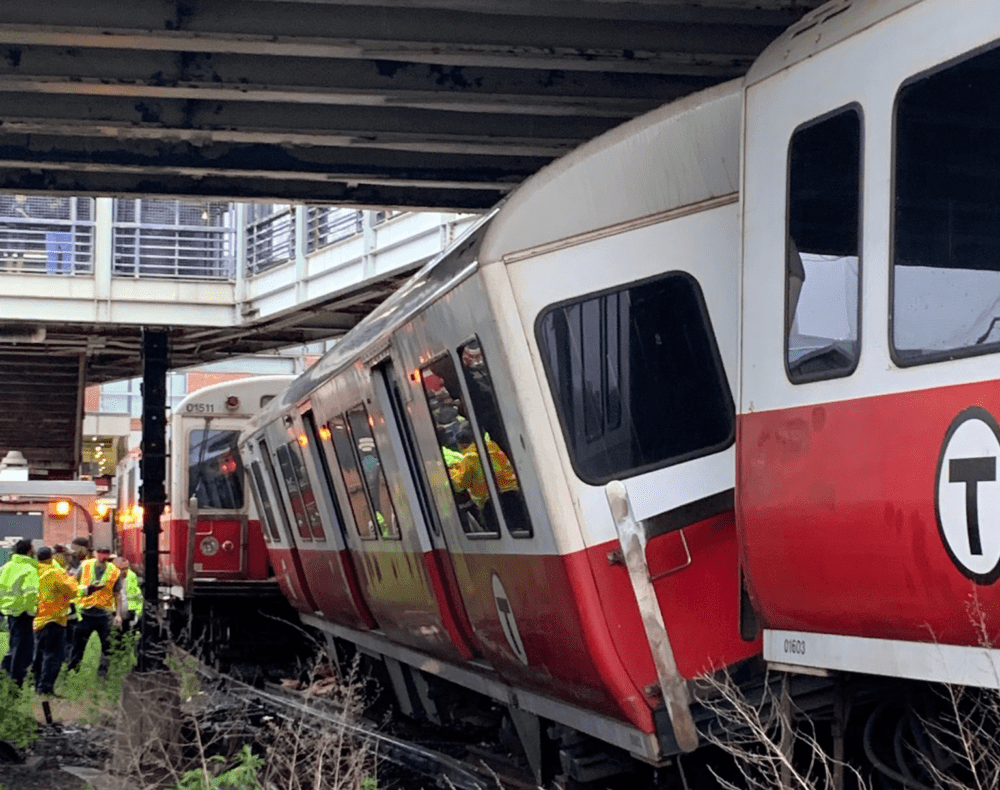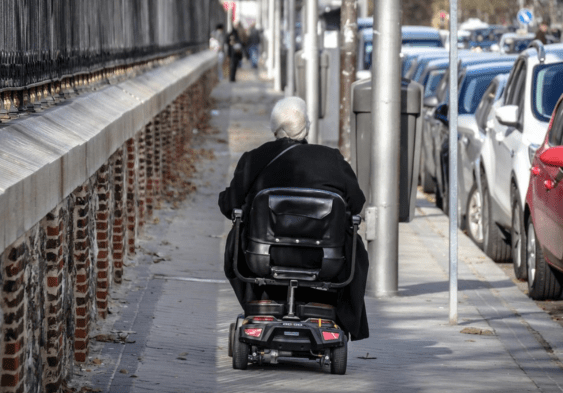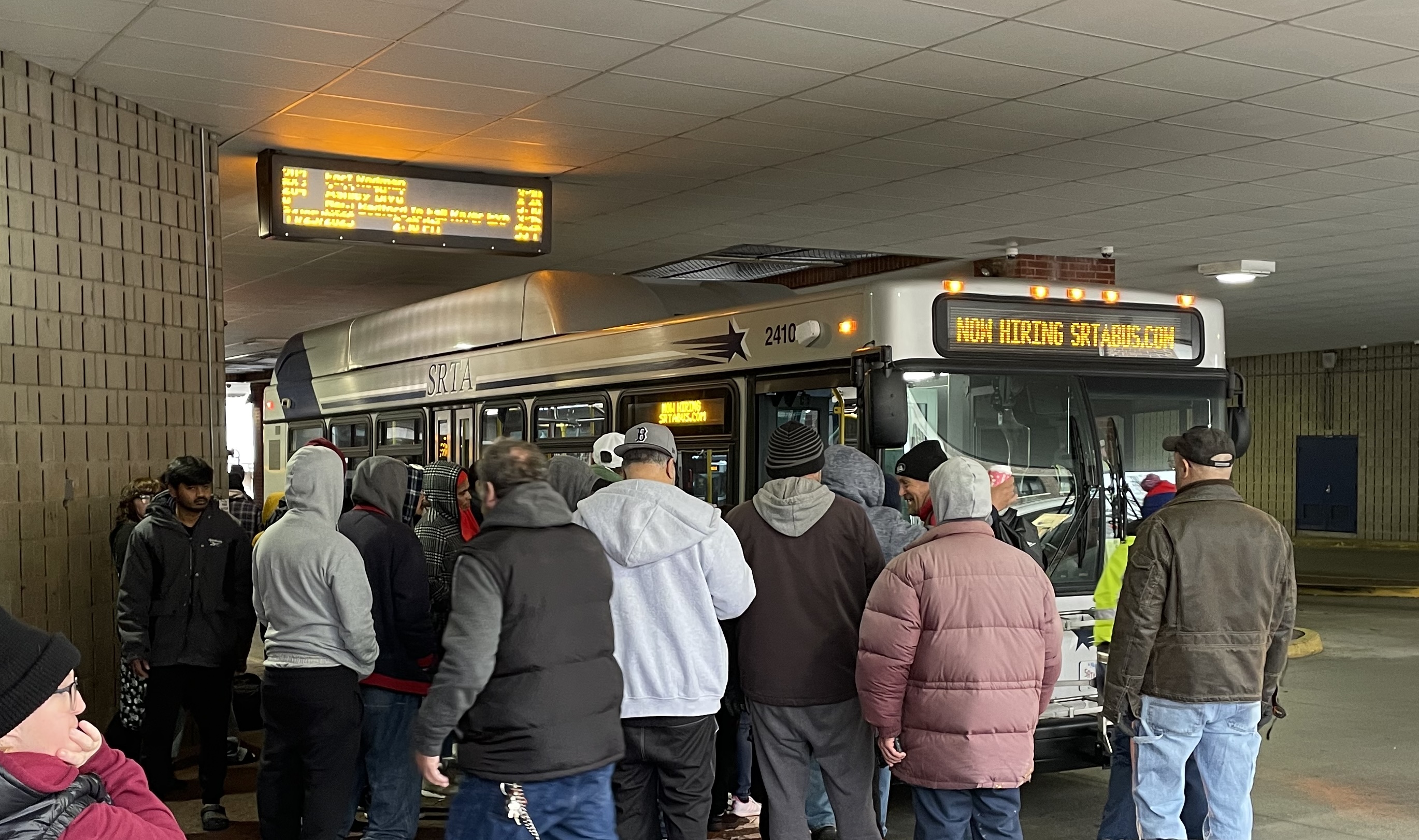An independent panel of experts is warning state officials that "many aspects of the T’s approach to safety and operations need immediate attention" in a sharply critical report issued today.
The MBTA's Fiscal and Control Management Board (FMCB) commissioned the report in June after an extremely disruptive derailment on the Red Line. Its authors, who interviewed over 100 MBTA staff and outside regulators, include Ray LaHood, the former U.S. Secretary of Transportation; Carolyn Flowers, a former Acting Federal Transit Administration (FTA) Administrator, and Carmen Bianco, the former president of New York City Transit.
"In general, the SRP (safety review panel) found that the T’s approach to safety is questionable," according to an executive summary of the panel's findings that was released Monday morning. "In almost every area we examined, deficiencies in policies, application of safety standards or industry best practices, and accountability were apparent."
Among the report's key findings:
- MBTA staff are stretched thin after years of cuts to the agency's operating budgets, and workers in the field distrust senior managers: "Our staff interviews and work in the field revealed that leadership feels somewhat defeated, helpless and in some cases hopeless," wrote the report's authors. "There is a general feeling that fiscal controls over the years may have gone too far, which coupled with staff cutting has resulted in the inability to accomplish required maintenance and inspections, or has hampered work keeping legacy system assets fully functional. Staff repeatedly shared their frustration with the cost-cutting process and the inability to acquire new positions as needed to accomplish the task at hand."The report also notes that "The workforce does not feel supported by management and are clearly frustrated with the management’s lack of responsiveness to their needs... During this review, we also heard and gained first-hand knowledge of circumstances where employees, who reported safety issues on numerous occasions eventually lost faith in management’s ability to care about getting anything done. As a result, it is likely that many safety issues today go unreported.
- A disorganized schedule for inspections and preventative maintenance "offer an explanation for many of the service disruptions that the MBTA is experiencing," says the report."Over the years, due to shortage of and/or inexperienced leadership, competing priorities, and fiscal controls, operational managers have had difficulty identifying what maintenance and inspections need to be done, or have been dropped due to fiscal pressures or lack of staffing. Furthermore, there is little, or in many cases, no data to support what maintenance and inspections are required, or what has been accomplished."
- The MBTA suffers from "a total lack of routine upward or downward communication within the agency," and "Leadership has not identified or attempted to open channels of communication with the workforce. An overwhelming number of employees are not able to receive electronic communications and have minimal alternatives to communicate with agency leaders, nor do leaders have a way to communicate with the workforce," according to the report.
The safety review was the first item on the agenda for the FMCB's Monday meeting, and the three panelists joined the board in person to present the panel's findings and recommendations.
"The T is safe. And it bears repeating, the T is safe," emphasized panelist Ray LaHood at the beginning of his presentation. "But the T could be safer... if safety becomes your number one priority, service will improve. There is a direct correlation between safety and service."
Advocates from TransitMatters responded to the report's publication with a call for MBTA to adopt the panel's recommendations, especially its call for increased operational resources, while also maintaining the FMCB's commitments for capital upgrades to the system.
"The Safety Review Panel report is an indictment of an agency that everyone in Metro Boston depends upon for safe, reliable transit and rail service, regardless of whether they use it or not," wrote TransitMatters in a statement. "We caution that this report must not distract from the urgent need to advance key modernization and connectivity projects like Regional Rail, Better Bus, West Station and the Red/Blue Connector. The MBTA must be able to multitask. If leadership and staff cannot do this because they lack resources, the legislature and governor must provide those resources.






